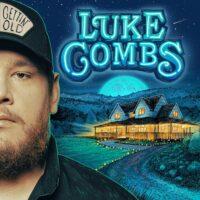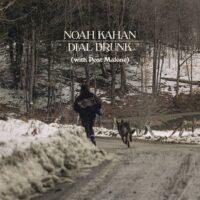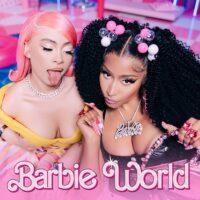
In 2023, I had a lot of long-held beliefs that were shaken, if not completely sunk. One was that a hit wasn’t a hit without radio. Another was that uptempo, mainstream pop would always work, if only radio could find it. Instead, other genres moved in to fill (some of) hit radio’s playlist slots, and they came from two very disparate places.
A few years ago, Luke Combs, Kane Brown, and Morgan Wallen were supposed to be the artists who reclaimed Country music from its pop influences. But this April, all three acts had songs in play at Top 40, Hot AC, and AC radio. By December, Ross on Radio readers and Facebook friends easily agreed that the influx of Country crossovers were the “Songs That Made a Difference in 2023,” not just the biggest hits of the year but the ones that shifted the shape of a format.
The Country crossovers weren’t surprising in light of Country radio’s greater ratings strength throughout the year. It was the format that still had a lot of current music in play and a label community that was spurred by streaming, but not willing to entirely delegate the hitmaking process to TikTok. (That said, streaming had its own significant impact on Country radio, compelling the release of Wallen’s “Last Night” and Combs’s version of “Fast Car” to radio, even with other singles scaling the charts.)
Country had the ability to send radio songs with an existing story at a time when Top 40 was struggling to create more than a few of its own hits every year. It had that in Active Rock, too. Hardy sent Active Rock its own songs, but, really, “Wait in the Car” would have fit. Jelly Roll’s “Need a Favor” was a Country, Active Rock, and Top 40 hit at year’s end.
 Noah Kahan f/Post Malone’s “Dial Drunk” was a category of one (at least this year, a decade after the Mumford & Sons sound flourished). It peaked only at No. 16, but it’s significant to me as the song that Triple-A and Alternative could send to the pop charts with a streaming story. It wasn’t a Country hit, but it distilled a lot of what was popular about Country’s current viral hits, in the same way that acts like Hootie & the Blowfish or Sheryl Crow did for Alternative and CHR radio in 1995. (So does Teddy Swims’s “Lose Control.”)
Noah Kahan f/Post Malone’s “Dial Drunk” was a category of one (at least this year, a decade after the Mumford & Sons sound flourished). It peaked only at No. 16, but it’s significant to me as the song that Triple-A and Alternative could send to the pop charts with a streaming story. It wasn’t a Country hit, but it distilled a lot of what was popular about Country’s current viral hits, in the same way that acts like Hootie & the Blowfish or Sheryl Crow did for Alternative and CHR radio in 1995. (So does Teddy Swims’s “Lose Control.”)
Not every Top 40 programmer was enthusiastic about the Country crossovers. For older PDs, there were echoes of CHR’s 1980-81 malaise when Country and the-music-now-known-as-Yacht-Rock dominated. Wallen’s current “Thinkin’ Bout Me” is as big a hit as “Last Night” or “Wasted on You” at the pop-leaning medium-market stations that found those songs first. But it’s moving slowly into the Top 25 his week. Perhaps that signals resistance.
Country wasn’t the only format filling a product void. In 2023, consultant Guy Zapoleon identified 17 consensus power hits at Mainstream Top 40. Mediabase’s No. 10 song of the year was “As It Was” by Harry Styles, which began 2023 as already an eight-month-old record and former No. 1. The company didn’t include Glass Animals’ three-year-old “Heat Waves” in its published 2023 rankings, but it was still the No. 27 most-played song.
 There was more from Hip-Hop/R&B in 2023 as well. This summer, before the ascent of Doja Cat’s “Paint the Town Red,” Billboard wrote about the lack of a Hip-Hop No. 1 on the Hot 100 this year. That article, and those it prompted in other publications, came as “Barbie World” by Nicki Minaj & Ice Spice was already shaping up as the biggest Hip-Hop crossover in some time. If “Barbie” or “What It Is (Block Boy)” by Doechii weren’t the songs that critics had in mind to celebrate Hip-Hop 50 this summer, they were still the medium-weight mid-to-uptempo mass-appeal records that both Hip-Hop and CHR had been missing for years.
There was more from Hip-Hop/R&B in 2023 as well. This summer, before the ascent of Doja Cat’s “Paint the Town Red,” Billboard wrote about the lack of a Hip-Hop No. 1 on the Hot 100 this year. That article, and those it prompted in other publications, came as “Barbie World” by Nicki Minaj & Ice Spice was already shaping up as the biggest Hip-Hop crossover in some time. If “Barbie” or “What It Is (Block Boy)” by Doechii weren’t the songs that critics had in mind to celebrate Hip-Hop 50 this summer, they were still the medium-weight mid-to-uptempo mass-appeal records that both Hip-Hop and CHR had been missing for years.
Then there was Afrobeats, already established as a common-denominator genre that united Hip-Hop and Adult R&B radio in the way that reggae once did. In 2018, Davido’s “Fall” took up residence atop New York’s WWPR (Power 105) for several years. It’s currently around 6,500 spins, but “Fall” never made its way to sister WHTZ (Z100).
Even by then, Afrobeats had made its way to the pop charts, but at the time, there was less American context for Drake’s “One Dance,” and the industry here grouped it more with tropical-flavored hits such as Omi’s “Cheerleader” or Ed Sheeran’s “Shape of You.” Two years ago, when I wrote the last Songs That Made a Difference wrap-up, Wizkid’s “Essence” was the almost-crossover-hit that showed Afrobeats’ strength. In 2022, it was Doja Cat’s “Woman.” This year, it was Rema & Selena Gomez’s “Calm Down” and, at year’s end, Tyla’s “Water.”
 Both those songs were themselves indicative of other trends. “Calm Down” had a pop artist’s guest appearance, but it was already a worldwide smash that still took a year to confirm itself in power rotation here. “Water” came to radio via TikTok while the artist already had another song in play.
Both those songs were themselves indicative of other trends. “Calm Down” had a pop artist’s guest appearance, but it was already a worldwide smash that still took a year to confirm itself in power rotation here. “Water” came to radio via TikTok while the artist already had another song in play.
Over the years, there have always been a few songs in this column that weren’t sonic departures, but confirmations that mainstream uptempo pop still worked, when given a chance. There have also been songs that showed radio, not the disparate strands of Billboard’s Hot 100, to be arbiter of a true hit.
I’m a little less firm in those convictions this year. “Flowers” by Miley Cyrus and Taylor Swift’s “Karma” were examples of mainstream mid-to-uptempo pop hits that still sounded like a hit. But “Bad Idea Right” by Olivia Rodrigo was an uptempo record by a major-artist unleashed at a time of violent placidity on CHR radio, but unable to break the grip of the ethereal hits that are now 3-4 deep at the format. Rodrigo’s “Vampire” was her undeniable hit, and at least that song only began softly.
Top 40’s shoegaziness felt as if, during the 1994 doldrums, “Fade Into You” by Mazzy Starr had not only been a bigger hit, but the only legitimate hit. Not coincidentally, “Fade Into You” was being sampled by SZA as the year began before Top 40 decided that it liked “Kill Bill” even more. Miguel’s “Sure Thing” and the Weeknd’s “Die for You” were not only similarly placid, but like Taylor Swift’s “Cruel Summer,” examples of a less-known song from the time of radio’s greater influence that could still break faster than a brand-new song.
It was also harder to assert that only radio airplay defined a hit this year. “Life Goes On” by BTS and “We Don’t Talk About Bruno” from Encanto were Hot 100 No. 1s that nevertheless didn’t become “hits” in the ubiquitous “everybody-knows-them” “Careless Whisper” or “Poker Face” sense that used to define a common-currency hit record.
But in 2023, Top 40 didn’t make many common-currency hit records either. So those songs that did scale the Hot 100 were harder to dispute. The consumer press, never fond of radio anyway, took its clues almost entirely from the Hot 100. Part of the perception that “Bad Idea Right” wasn’t a hit was its erratic Hot 100 pattern, although it finally made the Top 10 when the album came out.
Meanwhile, it seemed harder to say that Oliver Anthony Music’s “Rich Men North of Richmond” wasn’t a real hit when it became a national news story and the lead question in a presidential debate, even if that seems like so four months ago now. The combination of topping the Hot 100 and national controversy did propel Jason Aldean’s “Try That in a Small Town” from a record that Country radio was eyeing warily to a true No. 1 hit there (and, again, at a format with a bigger footprint than pop radio). By comparison, organizing the Beatles’ fanbase could only drive “Now and Then” to No. 7.
In 2024, I’m hoping for radio to assert itself again more than any single act’s fanbase. I’m also looking for it to take even more from other formats, but to balance off its own records, rather than make up for a lack of them. With Swift having demonstrated so thoroughly in 2023 that we still enjoy having a uniculture sometimes, I’m hoping for a label and radio emphasis on creating more superstars and less reliance on waiting for left-field unicorn hits to wander along. I’m hoping for more Records That Make a Difference in 2024. But radio and labels have to recognize the need.
This story first appeared on radioinsight.com
